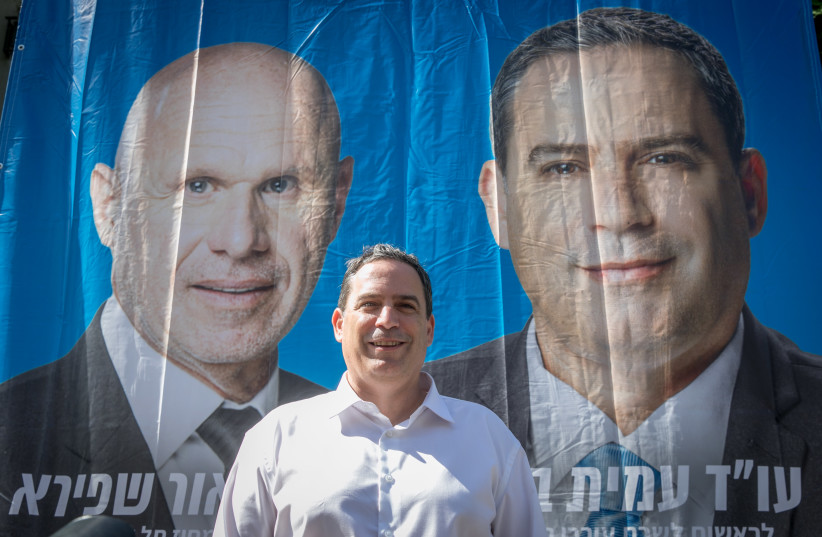Government advances bill to weaken Israel’s Bar Association
The government’s Ministerial Committee on Legislation approved on Sunday a proposal to weaken the Israel Bar Association (IBA), after the association on Tuesday elected as its new chairman a staunch opponent of the government’s judicial reforms.
The bill would establish a new council responsible for admitting Israel’s lawyers onto the bar and granting them licenses to practice law, authorities that currently belong to the IBA. The IBA would only remain as a voluntary representative body for lawyers who are interested. Unlike the IBA, which is elected independently by the country’s lawyers, the new council would be politically affiliated, as most of its members would be appointed by the governing coalition.
The Bar Association also occupies two spots on the Judicial Selection Committee, and the new bill could give the coalition greater control over these spots, without having to alter the makeup of the committee, which in March raised fierce opposition from protestors.
The decision to bring the bill up in the Sunday ministerial committee came after lawyer Amit Becher, who is a vocal opponent of the government’s judicial reforms, won Tuesday’s election for the Bar Association by a landslide, and also gained a majority in the Bar Association’s national council, with 16 out of 30 seats. The Council is responsible for electing the association’s two representatives on Israel’s Judicial Selection Committee. The two representatives are thus likely to side with anti-reform members of the committee, and not with Justice Minister Yariv Levin.
 Amit Becher arrives to cast his ballot for the head of the Israeli Bar Association, at a voting station in Tel Aviv on June 20, 2023. (credit: MIRIAM ALSTER/FLASH90)
Amit Becher arrives to cast his ballot for the head of the Israeli Bar Association, at a voting station in Tel Aviv on June 20, 2023. (credit: MIRIAM ALSTER/FLASH90)What are the clauses in the bill?
The bill actually includes a clause that would entirely remove IBA representatives from the Judicial Selection Committee and from other committees responsible for electing judges for religious courts. However, the bill’s sponsor, Likud MK Hanoch Milvetsky, wrote a letter requesting from the ministerial committee that this clause be removed, so as not to irk the opposition and protest movements.
According to the coalition, the bill also would not apply immediately, so that it does not appear as if it came directly as a result of the government’s preferred candidate, Effi Nave, losing the election. The coalition did not say when it would apply.
Bills that are sponsored by private MKs (as opposed to the government or one of the Knesset’s committees) are brought before the Ministerial Committee on Legislation in order for the government to express its opinion. Bills with government support usually stand a higher chance of passing into law. The bill will now head to the Knesset for a preliminary reading, which could take place as soon as Wednesday.





Comments are closed.